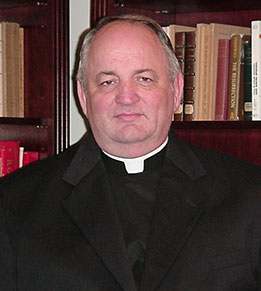 |
| Fr Mark Pilon |
Humanae Vitae was not, however, a one-off foray by the Catholic Church into the arena of sexual morality. As the late, great Fr John Hardon S.J. detailed, the Church's condemnation of contraception dates back to the earliest ages. In 1930, Pius XI's encyclical Casti Connubii referred to the intrinsically evil nature of contraception. More recently, both John Paul II (particularly in Familiaris Consortio) and Benedict XVI have reaffirmed the importance of this teaching. So the encyclical of Pope Paul VI was part of a continuum of Catholic teaching, given in recognition that “the Church cannot ignore these questions, for they concern matters intimately connected with the life and happiness of human beings” (Humanae Vitae opening paragraphs).
Against this background, the absence of the topic of contraception from the documentation issued in preparation for this year’s Synod on the Family can only be a deliberate decision to shift the official stance of the Catholic Church, and is the more worrying for that reason. An excellent article by Fr Mark Pilon – a priest of the diocese of Arlington, Virginia – sets the omission in context. Fr Mark’s focus is on the questionnaire (lineamenta) sent out to prepare for the 2015 Synod and he observes:
“How strange it is, then, that a Special Synod called by the Pope precisely to counteract the contemporary negative forces undermining marriage and the family, and to strengthen the family as the basic institution of human society and the Church, should say little or nothing about the role that the virtually universal practice of contraception has played in causing this crisis. This virtual ignoring of the tremendous impact of contraception on married life and societal stability was confirmed by the absence of a single question in the 2015 Synod lineamenta which deals directly with the problem that contraception plays in the crisis facing marriage and family life in our day.”The lineamenta led in turn to the Instrumentum Laboris, the working document produced by the Vatican for the forthcoming Synod. The manner in which the Instrumentum Laboris undermines the teaching of Humanae Vitae is explained in Voice of Family’s analysis of the document.
Fr Mark refers to the great magisterial teachings of many of the Popes, and refers specifically to the way that Paul VI and John Paul II “made it crystal clear how contraception, and the contraceptive mentality, damage marriage [and] undermine married love, family life, and human society”. In his article, which is well worth reading in its entirety, he examines the failures in passing on the Church’s teaching in seminaries and other Catholic institutions of learning. He discusses the reluctance of many members of the Church to speak out on these issues, even in the face of the demographic problems that universal contraception is causing (and is set to cause) in much of the western world. He notes the effect of smaller Catholic families on religious vocations.
Father Mark also observes how “contraception establishes a mentality that rejects life, seeing life as sometimes undesirable” and comments that “that mentality will unfortunately lead many to choose abortion as a last resort to eliminate a new life”. (One of the many false promises of last century’s sexual revolution was that freely available contraception would remove the 'need' for abortion. Subsequent developments have shown beyond all doubt that the demand for abortion actually increases sharply in societies where contraception is more freely available.)
Nor is Fr Mark afraid to name names when it comes to examining why the Church’s prophetic teachings have failed to take root as they should have done. And he is also very clear that moral norms have been watered down “to become just contingent, legalistic, voluntaristic ‘rules’ that can and must be changed with the times and cultural evolutions”.
In response to all these issues, Fr Mark argues that the forthcoming Synod “may well be the last practical chance to make a real contribution to the salvation of marriage and family life, and to western society in general”. All the more alarming, therefore, is his observation that:
“Those responsible for the preparation of the coming 2015 Synod, for some reason, chose not to submit a single study question in the lineamenta, directly dealing with the problem of artificial contraception. Obviously, these Church leaders did not see this moral and practical issue as a significant factor in the collapse of marriage and family life over the past half century. It was as if the extensive papal magisterium of Pope Paul, John Paul II, and Benedict—in brilliantly analyzing the devastating impact of contraception on married love and marriage stability, as well as on demographic survival of society—had never taken place.”
He concludes that contraception is much more than just one moral issue amongst others, and that the Synod “needs to confront this greatest ever threat to man and human society, for time is quite literally running out to reverse the social and moral chaos it has generated”.
(I am grateful to a SPUC supporter who kindly summarised Fr Pilon's erudite article for this blogpost.)
Comments on this blog? Email them to johnsmeaton@spuc.org.uk
Sign up for alerts to new blog-posts and/or for SPUC's other email services
Follow SPUC on Twitter
Like SPUC's Facebook Page
Please support SPUC. Please donate, join, and/or leave a legacy